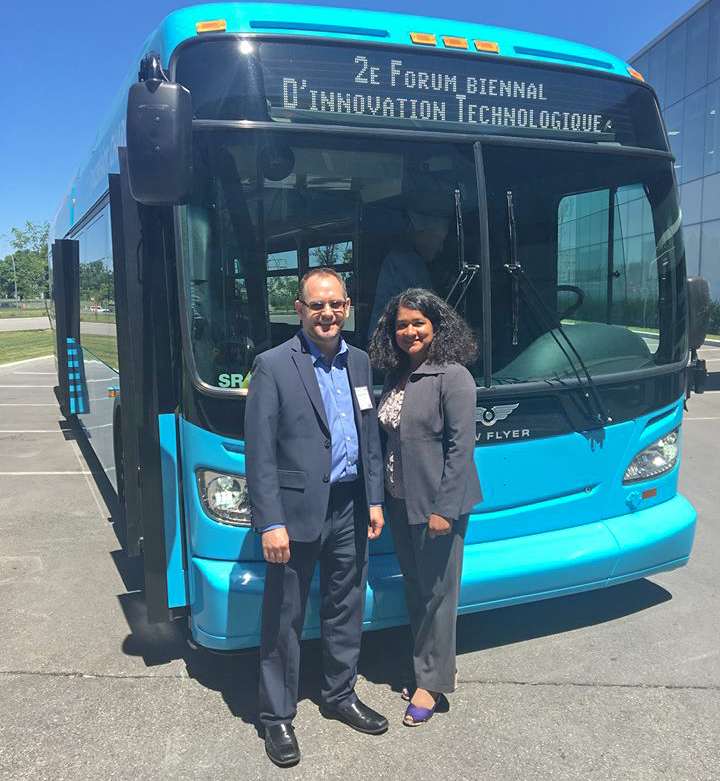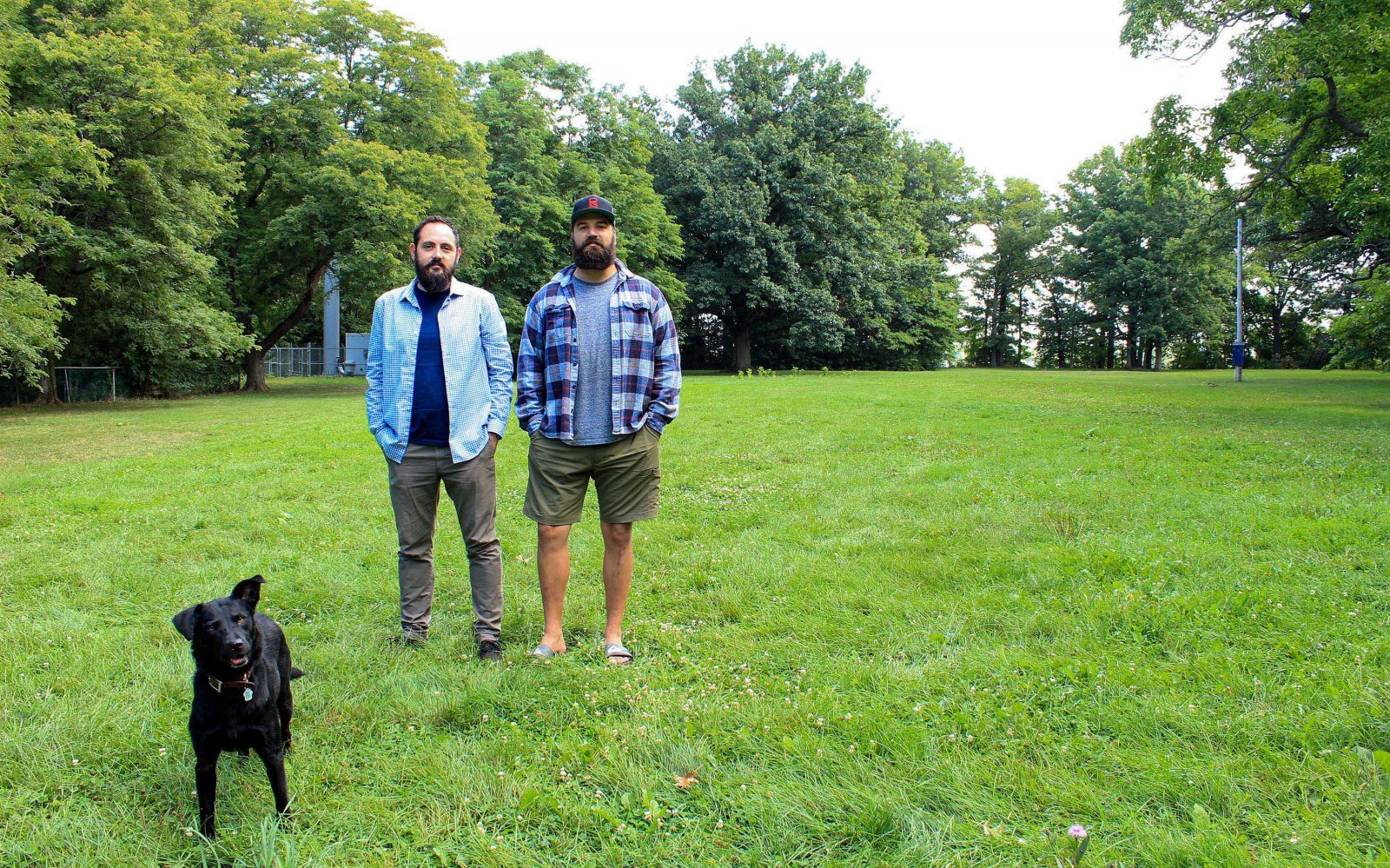Article reposted from TVO | By: Justin Chandler

From left to right: Hamilton Street Railway New Flyer C40LF bus (Adam E. Moreira/Wikipedia); GO trains (tirc83/iStock); TTC streetcar (BalkansCat/iStock).
HAMILTON — During the election campaign, there’s been plenty of discussion about how Canada can recover from COVID-19, and some experts want to make sure that one topic in particular isn’t left out: transit.
“Transit has come to be recognized as an important aspect of making major cities run better and as fundamental to issues of equity,” says Drew Fagan, professor at the University of Toronto’s Munk School of Global Affairs and Public Policy. “Building back better — to use what’s become a slogan — involves transit, and you’ve seen governments recognize that,” he adds, pointing to greater federal funding and provincial and federal support for transit projects in the Greater Toronto and Hamilton Area. “I think part of the issue is not just announcing the projects but ensuring that you get best use of that transit by developing intelligently along the lines.”
So what would better post-pandemic transit look like, and how are the federal parties proposing to support it?
What is a transit-oriented community?
Building what people need along transit lines results in what researchers call “transit-oriented communities.” A recent policy paper Fagan cowrote with University of Toronto professor Matti Siemiatycki states that such communities “co-locate housing, jobs, public amenities and social services near high quality public transit. This maximizes the public benefits that come from major investments in public transit.”
Experts say these sorts of communities can improve the quality of life for drivers and non-drivers alike. “The more people live within a fairly small activity space within their day-to-day lives, the more potentially useful transit could be to them to get around without a car,” says Chris Fullerton, a geography professor at Brock University. Fullerton notes that, while driving tends to be faster than public transit for longer trips — due to transfers, for example — public-transit travel times are often comparable for short distances. That means transit-oriented communities may also lure people out of their cars, something experts say should be a priority given that the pandemic seems to have led more people to drive.
Public transit is about more than getting commuters from point A to B. “Public transit is a vital tool to promote our shared goals for social inclusion, public health, the climate emergency, and economic opportunity,” reads the Keep Transit Moving website. The national advocacy group points to a 2014 report by medical officers of health in the GTHA that found investments in transit and changes in land use (such as building transit-oriented communities) could increase physical activity and reduce air pollution, thereby preventing illness and deaths.
“A major motivation we have is reducing greenhouse-gas emissions,” says Ian Borsuk, coordinator with Environment Hamilton and member of the Hamilton Transit Riders’ Union steering committee. According to Fullerton, reducing car travel and transitioning transit fleets to renewable energy are both effective approaches to this. “If you can develop a fleet of electric buses, and then you’ve got those filled with passengers that take 20, 30, or 40 cars off the road, the impacts, as far as emissions, will be incredible,” he says. Although replacing vehicles comes at a significant cost, he notes, upper levels of government can provide funding to help.
How COVID-19 has affected transit
The University of Toronto Transportation Research Institute published survey data in August suggesting that, during the second surge of COVID-19 in Toronto and Vancouver, commuting patterns were changing. About 32 per cent of respondents said they would ride transit less following the pandemic, while 56 per cent said they wouldn’t ride less, and 12 per cent were unsure; 58 per cent of respondents agreed that the pandemic made owning a car more appealing, and 26 per cent reported having looked into buying one. Among those surveyed, there was a 14 per cent increase in vehicle ownership between May 2020 and March 2021.
Matthew Palm, lead author of the report and research coordinator with U of T Scarborough’s Mobilizing Justice Project, which studies inequities in Canadian transportation systems, is concerned about how such numbers may shape future policy: “My biggest fear from a social-policy standpoint is that people are going to overreact and just let the transit systems go without considering that there are certain people for whom transit is how they get their groceries.” He also notes that the phenomenon of the pandemic turning riders into drivers may be overstated. Based on other research and on his own analysis of the survey, Palm says a good portion of those turning away from transit seem to be young people and recent immigrants who might have bought cars anyway. Regardless, he says, the focus should be on the people who never stopped taking public transit.
According to the 2021 Vital Signs report by the Hamilton Community Foundation, Hamilton public-transit ridership fell 46 per cent to 11.7 million rides in 2020, compared to 21.6 million rides in 2019. There were similar decreases in Kitchener-Waterloo, York Region, and Mississauga. In Toronto and Ottawa, ridership initially fell 90 per cent but had returned to 30 per cent of pre-pandemic levels by November 2020.
Hamilton’s comparatively low decrease shows just how many people in the city need the transit system, says Borsuk: “Without that service, they wouldn’t have been able to get to their jobs.” Borsuk says he and other transit advocates have worried that the pandemic will result in less support for transit, so in the early stages of the public-health crisis, they formed the national Keep Transit Moving Coalition. “If you have municipalities needing to make cuts to service because of budgetary shortfalls and [lower] fare revenue, it’s going to make it harder to keep people on transit — but also harder for them to adopt it as a new form of transportation.”
What can the federal government do?
Fagan says that although it’s not immediately responsible for transit, the federal government is well-positioned to provide guidance and funding. The question for the feds is just how many strings they want to attach, he says: “The federal government is spending a lot more on infrastructure, and one can argue it has been reticent to apply policy expectations to its expenditures over time.”
In Hamilton, for example, the federal and provincial governments recently announced $370 million in funding for the bus system — on the condition that Hamilton buy new buses that run on natural gas instead of diesel and that money go to building a bus barn to charge and store electric buses. (Director of Transit Maureen Cosyn Heath tells TVO.org via email that the city plans to replace its diesel buses —currently 49 per cent of its fleet — with natural-gas buses over the next four years but did not say when the Hamilton Street Railway might start using electric buses.)
Keep Transit Moving is calling on federal parties to commit to, among other things, providing permanent operational funding and reliable capital funding for transit and establishing a national intercity and highway-bus service plan. (Capital funding is money that builds or acquires new things, such as bus shelters and vehicles, whereas operating funding covers day-to-day expenses including fuel, maintenance, and salaries.)
Election-platform points, such as the Conservative plan to link housing and transit funding, show parties are willing to take a more hands-on approach, Fagan adds: “I think all parties are thinking to some extent on these lines. Issues of equity, issues of climate, issues of accessibility, all the kinds of issues that make a city, especially the GTHA, a global-scale city that operates effectively.”
Borsuk says that’s a good thing. “We definitely need to see the federal government — if they’re going to be providing these investments — flex their muscles and say, ‘If we are going to be giving you this money, we need to see X number of affordable housing units built.’” And, he says, the coalition also has accessibility-related demands: “What we want to see is an accessibility audit of all bus, train, and streetcar stations. We want to see accessibility planning put in; we want to see more funding go to local transit agencies to improve and expand paratransit service where it’s necessary.”
How are Canada’s political parties responding?
TVO.org asked the Liberal, Conservative, NDP, and Green campaigns if transit is part of their plans for pandemic recovery, and if so, how.
Tim Grant, the Green Party of Canada’s municipal-affairs and transportation critic, says that, if elected, the party would invest in transit services and infrastructure, electrify buses, and improve intercity transit. “We should not be providing funding to cities for rapid transit projects unless those cities have developed plans to put enough housing density around each station, so that the new lines can pay for themselves within a few years,” he tells TVO.org via email.
The NDP campaign did not respond to a request for comment. In its platform, however, the party promises it would expand public transit within and between communities and prioritize funding for low-carbon projects — “with the goal of electrifying transit and other municipal fleets by 2030.” It would also help provinces and municipalities create fare-free transit, if asked.
A spokesperson for the Conservative Party of Canada did not answer TVO.org’s question but pointed to promises to fund and build public transit. The party platform says that a Conservative government would “require municipalities receiving federal funding for public transit to increase density near the funded transit.”
A Liberal Party of Canada spokesperson sent TVO.org a statement touting the government’s recent transit investments and the creation of a permanent public-transit fund slated to begin in 2026. In Ontario, the statement says, the Liberal government would continue investments in the Toronto area. The party platform promises support for rural transit, zero-emission buses, and intercity transit.
Moving forward
Palm says that people who depend on transit need to be the focal point going forward. “Building a transit system in tandem with neighborhoods — with the land-use to support those folks — can also get the choice riders back, particularly the choice riders who prefer those urban environments.” “Choice riders” are those who can get around without public transit but may choose to use it. When more commuters — including choice riders — use a transit system, service generally improves, he says.
While the pandemic has presented many challenges, it has also changed the conversations around public transit for the better, says Palm: “There was just this conceptual paradigm shift in a lot of people’s thinking about what transit really is at the most basic level, because people were asked to only use it if they really need it. What we found is there are a significant number of people who truly need it.”
Ontario Hubs are made possible by the Barry and Laurie Green Family Charitable Trust & Goldie Feldman.
Article reposted from TVO | By: Justin Chandler







